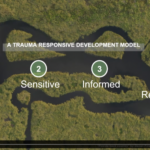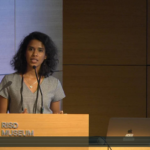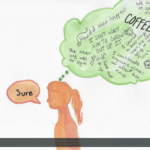
CHELSEA COE
Headspace
JONATHAN DEFAVERI
Headspace
[s2If is_user_logged_in()]DOWNLOAD PDF
[/s2If]
What forms of our pandemic adaptation have also become barriers to connection? In this wildcard session, around 40 EPIC attendees collectively examined the aspects of resilience that support—and sometimes hold us back from—the intimacy and safety we seek to create as ethnographers.
Researchers have faced many barriers to building connection and compassion remotely as the stress in our communities piles up from the COVID-19 pandemic. When people share their pain, how do we protect the integrity of our work while also showing care? What are we doing to ensure our own resilience? How do we show care and connection again in person after time spent adapting to screens?
In this session, the presenters began by sharing and deconstructing their own personal experiences of navigating this tension as researchers working in mental health through three lenses: connection, protection, and comfort/discomfort. Working with Headspace meditation...




